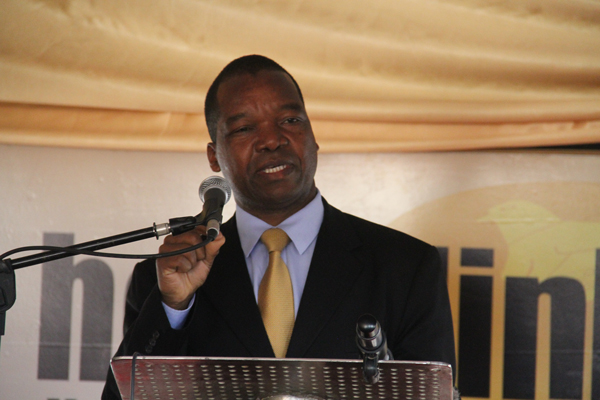
Seeking to appreciate the economic state of the nation and to understand measures that monetary authorities are taking to address issues affecting Zimbabweans, Standardbusiness reporter Victoria Mtomba (VM) caught up with the central bank governor John Mangudya (JM) and discussed various issues to do with debt clearance, liquidity challenges and the outlook for the country. Below are excerpts of the interview.

VM: We understand that the International Finance Corporation (IFC) is coming to set up a branch in Zimbabwe, is it true? JM: IFC will come to Zimbabwe fulltime after the clearance of IMF debt arrears because those arrears are the major obstacle right now. Nevertheless, the IFC has started to scout for investment opportunities and they have been visiting Zimbabwe for the past three months. The delegations included the chief executive officer of IFC who was in town this week and they are bullish about the Zimbabwean economy.
VM: What sectors are being targeted by the IFC in Zimbabwe? JM: They expect to invest in infrastructure, financial services and agriculture. They have also been considering investment in existing companies and financial institutions and they have no limits for Zimbabwe. IFC has been in partnership with CBZ Holdings and it was influential in the industrial rehabilitation in the 1990s when it invested $150 million. Revival of industries is what is required in the economy. There is need to replace obsolete equipment for our industries to be efficient.
VM: What is the update on the debt clearance strategy? JM: Debt arrears clearance of $1,8 billion is moving as expected and the target is still the same. We are targeting April and June after the review of the Staff Monitored Programme (SMP) that will be in February and March next year. After we complete our SMP, we will not get into the 4th SMP but we will move to the Extended Credit Facility programme that will help us access funding. The money from the Special Drawing Rights (SDR) will move after we have completed the SMP.
VM: Why are you doing that? JM: We want to mitigate the risks for paying the arrears without unlocking funds. If we do well on the SMP, we will get the Extended Credit Facility that will go to the International Monetary Fund board for a programme for Zimbabwe. This will result in Zimbabwe getting new money that will be given to Zimbabwe as balance of payment. The facility will be bigger than the $110 million that we will have paid to the IMF. It will be around $500 million thereabout.
VM: Who will pay the debt and how will it be paid? JM: We will pay African Development Bank, IDA, through bridging finance and the balance will be paid through the African bilateral countries which I am not free to disclose. The African bilateral countries will pay $891 million while the bridging finance will take care of the $1 billion. If we manage to pay the $1 billion, we will not fail to clear the arrears.
VM: How should Zimbabwe tackle issues of internal devaluation considering that we cannot control the US dollar? JM: We cannot devalue the US dollar because the rate is given internationally. The issues of the rand and competitiveness can be addressed through production and economies of scale which will then help in bringing the cost of production down, which is part of the internal devaluation process.
- Chamisa under fire over US$120K donation
- Mavhunga puts DeMbare into Chibuku quarterfinals
- Pension funds bet on Cabora Bassa oilfields
- Councils defy govt fire tender directive
Keep Reading
VM: What can be done by business since South Africa is our major trading partner and the rand is weakening? JM: Zimbabwean companies should take advantage of the weakening of the rand and invest in equipment. We pray that we clear the arrears so that we export at cheaper prices.
VM: What is the outlook for 2016 with liquidity challenges that have been a major challenge for the country this year? JM: Next year should be a transformative year if all things fall into place such as the clearance of the arrears. Zimbabwe will improve its soft skills such as discipline and be good at implementing policies put in place by government such as the Special Economic Zones where the Victoria Falls will become the international financial hub to attract capital to Zimbabwe.











